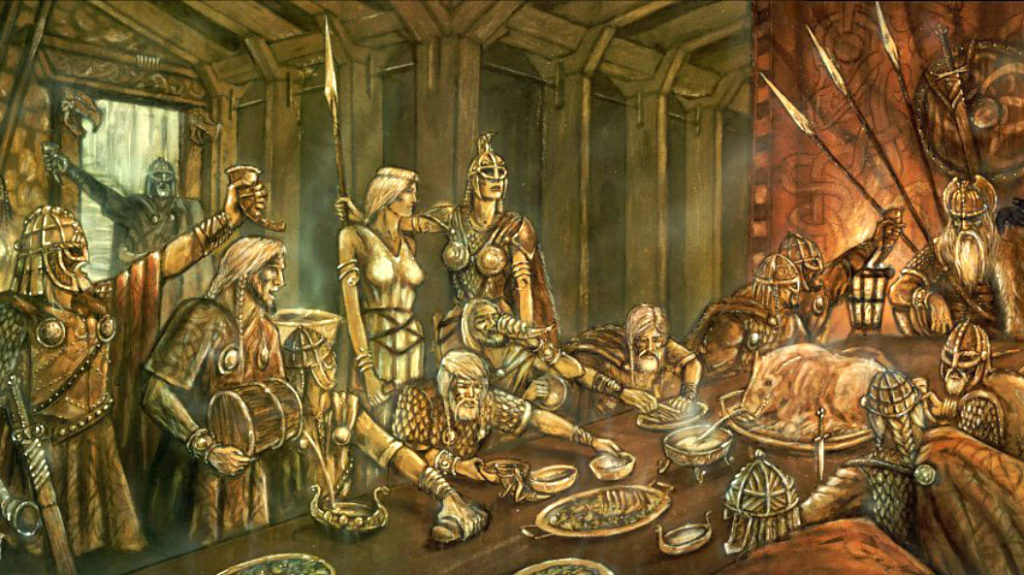We know we have a series of envelopes that we, as monads, use to experience life in our 1st triad. Those envelopes, just spoken of, number four, if we consider what has been described in the past as principal envelopes. What is a principal envelope? One that the monad builds out, with the help of the devas, each time it ventures forth from its rest in its causal envelope. These envelopes are constructed successively, reaching down toward the three lowest subplanes of matter (49:5-7). The vehicle used to experience these three subplanes is not a principal but a symbiotic relationship between the monad and its principals and an independent organism, again run by devas, that the monad activates with its consciousness. What happens when the monad no longer requires this borrowed virtual reality suit? Death!
However, it cannot be emphasised enough that death changes nothing. What do we mean? The monad remains precisely the same at death as it did before. What is missing is just the physical body. The monad has the same intellect, disposition, virtues and vices. The loss of the physical body no more makes this monad a different entity than removing an overcoat. Moreover, the conditions in which the 1st-self finds itself are those which its own thoughts and desires have already created for it. There is no reward or punishment from outside, but only the actual result of what the monad has done and said and thought while living in the physical world.
As we proceed with our description of the emotional life after death, it will be recognised that the facts correspond with considerable accuracy with the Catholic conception of purgatory and the Hades or Underworld of the Greeks. The poetic idea of death as a universal leveller is a mere absurdity born of ignorance, for, as a matter of fact, in the vast majority of cases, the loss of the physical body makes no difference whatever in the character or intellect of the person. There are, therefore, as many different varieties of intelligence among the so-called dead as among the living. This is the first and the most prominent fact to appreciate: that after death, there is no strange new life but a continuation, under certain changed conditions, of the present life on the physical plane. That is why you are not tapping into some universal truth when you get messages from departed souls on this plane. Whoever you may be communicating with is as stupid up there as they were down here.
So much is this the case that when a monad first arrives on the emotional plane after physical death, it does not always know that it is dead. It does not always understand how the emotional world differs from the physical, even when it realises what has happened. In some cases, people consider the very fact that they are still conscious an absolute proof that they have not died, and this is despite the much-vaunted belief in the immortality of the soul. If a person has never heard of emotional plane life before, they are likely to be more or less disturbed by the unexpected conditions in which they find themselves. Finally, they accept these conditions, which they do not understand, thinking them necessary and inevitable.
When the monad looks out upon the new world, at first glance, it sees very little difference and supposes itself to be looking at the same world as before. As we have seen, each degree of emotional matter is attracted by the corresponding degree of physical matter. If we imagined the physical world being struck out of existence without any other change, we should still have a perfect replica composed of emotional matter. Consequently, a person on the emotional plane would still see the walls, furniture, people, etc., to which they were accustomed, outlined as clearly as ever by the densest type of emotional matter (48:5-7). If they examined such objects closely, they would perceive that all the particles were visibly in rapid motion instead of only invisible as on the physical plane. But, as few people observe closely, a person who dies often does not know at first that any change has come over them. Thus, many, especially in Western countries, find it difficult to believe that they are dead simply because they still see, hear, feel and think. The realisation of what has happened dawns gradually, as the person discovers that although they can see their friends, they cannot always communicate with them. Sometimes, they speak to them and are baffled when they get no response. They try to touch them and find they can make no impression on them. Even then, for some time, they may persuade themselves that they are dreaming. At other times, when their friends are asleep, they are perfectly conscious of them and talk with them as before. Why? Because their friend has entered into the Emotional World where they now dwell. You can see how this can be confusing for a monad who has yet to learn that they have exited their physical envelope.
By degrees, the person begins to realise the differences between their present life and the one they lived previously in the physical world. For example, they soon find that all pain and fatigue have disappeared. They also find that in the emotional world, desires and thoughts express themselves in visible forms, though these are composed mainly of the finer matter of the plane. As their lives proceed, these become more and more prominent. Moreover, though a person on the emotional plane cannot interact with the physical bodies of their friends, they can and do see the physical bodies of their friends and consequently know their feelings and emotions. They will not necessarily be able to follow the events of their physical life in detail. Still, they would at once be aware of feelings such as love or hate, jealousy or envy, as these would be expressed through the emotional bodies of their friends, visible to now departed monad, residing on this plane. The narrative recounted here may be at variance with many people’s concept of moving through a tunnel of light and finding themself in the Elysian Fields or the Halls of Valhalla. For many, the whole process of exiting the physical envelope is so strongly resisted that they hold on to a reality of their physical lives, even when there is a clear indication that things have radically changed. Will you be in a similar position when you pass the threshold? Of course not. You are Hylozoicians now and know what to expect. So that white tunnel may well appear for you, and off you will scuttle up the drain pipe to Nirvana. Right? So, the description just given is for those confused souls who do not know what to expect when they transition from the Physical to the Emotional plane.
Although the living often suppose themselves to have “lost” the dead, the dead are never for a moment under the impression that they have lost the living. A person, living in their emotional body after death, is more readily and deeply influenced by their friends’ feelings in the physical world than when they were on Earth because they no longer have a physical body to deaden their perceptions. A person on the emotional plane does not usually see the whole emotional counterpart of an object but the portion of it which belongs to the particular sub-plane upon which they are at the time. Moreover, a person only sometimes recognises, with any certainty, the emotional counterpart of a physical body even when they see it. They usually require considerable experience before they can clearly identify objects, and any attempt that they make to deal with them is liable to be vague and uncertain. Examples of this are often seen in haunted houses, where stone-throwing or vague, clumsy movements of physical matter occur. Again, suppose you are not the type to cling to your earthly life and the connections you had there. In that case, you are likely to be drawn into the Emotional world and, being fascinated by it, would quickly forget the recollections of your departed existence. Hopefully, you will realise that your departed existence was just a play you were appearing in and the character you portrayed no longer exists. We will consider this topic in greater depth in the next series of presentations on the Mental Envelope.
Frequently, not realising that a monad is liberated from the necessity to work for a living, to eat, to sleep, etc., a person, after death, may continue to prepare and consume meals created entirely by their imagination or even to build for themself a house in which to live. A case is recorded of a person who built for themself a house, stone by stone, each stone being separately created by their own thought. They might, with the same amount of effort, have created the whole house at once. They were eventually led to see that as the stones had no weight, the conditions differed from those found in physical life, so they were induced to investigate further. Remember, we have free will, and it is not for others to interfere with that will. However, there are mechanisms by which those already accustomed to life in the Emotional World can make a newly departed monad aware that something significant has changed in their world.
A person new to the conditions of emotional life may continue to enter and depart from a room by a door or window, not realising that they can pass through the wall just as easily. For the same reason, they may walk upon the Earth when they might just as well float through the air. A person who has, during earthly life, already acquainted themselves, by reading or otherwise, with the general conditions of the Emotional World would naturally find themselves on the ground more or less familiar after death. Consequently, they would not be at a loss to know what to do with themselves. Alas, this monads cohort is small, so for most, the transition, which should be the most natural of processes, becomes one of disorientation and confusion.
An intelligent appreciation of esoteric teachings on this subject, as experience has shown, is of enormous advantage to a person after death. At the same time, it is a considerable advantage for a person to have heard of the conditions of emotional life, even though they may have regarded such teachings as one of many hypotheses and may not have followed them up further. In the case of others who are not aware of what life after death may hold for them, their best plan would be to take stock of the position they now find themselves in, endeavour to see the nature of the life before them, and how they can make the best use of it. In addition, they would do well to consult some experienced friends while still incarnated or seek them out in the emotional plane when their friends visit during their nightly sojourn.
In the following presentation, we will finish the summary of the basic principles of a monad’s transition from earthly life.


